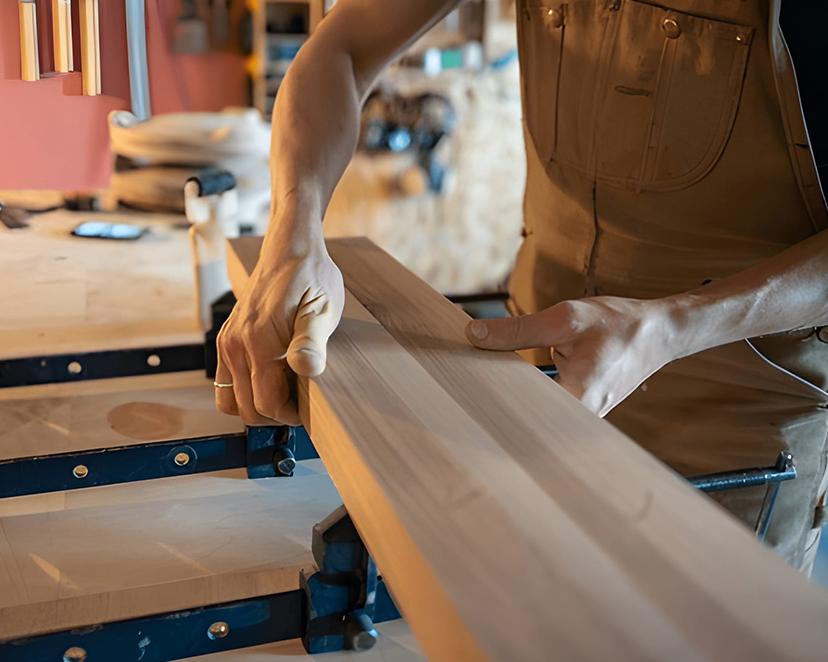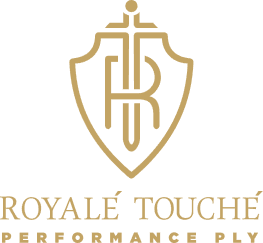
Top 10 Blockboard Uses That Make Furniture Strong and Stylish

October 28, 2025
When it comes to interior design and furniture production, the material you choose can be the difference between a standard arrangement and a lasting work of art. Of the various high-quality engineered wood materials available, blockboard has great strength, smoothness and durability. But do you know what actual blockboard applications make it such a versatile material? Let’s look closely at this material and how it enriches modern residences and commercial interiors with utility and style.
What is a Blockboard?
Before we talk about the major blockboard applications, it is worth outlining what it is about blockboard that makes it such a unique engineered lumber product. The Blockboard Manufacturing Process involves sandwiching strips of softwood together with plies (layers) of veneer on the face and back (top and bottom). This method creates excellent dimensional stability and prevents the product from bending or warping, making it ideal for large-piece furniture and vertical applications.
What are the most common applications of blockboarding? Blockboard is essentially the preferred material for doors, tables, shelving, partitions and wall panels, essentially any piece of furniture showing a strength-to-weight relationship.
Top 10 Practical Applications of Blockboard that Make Furniture Strong and Stylish
Wardrobe Construction
Wardrobes are undeniably one of the most common applications of blockboard. Blockboard is the perfect strength-to-weight ratio to prevent large wardrobe shutters from sagging over time. Blockboard holds screws and nails tightly, and when cut, it creates a great surface for the secure placement of hinges, door handles and attachments. If you enhance the blockboard wardrobes you can use decorative laminates to increase the appearance of strength and durability in your bedroom storage solutions.
Bookshelves and Storage Units
Have you ever thought about the applications of blockboards in libraries or study areas? Blockboard is widely used for bookshelves and storage cabinets. Blockboard panels remain durable when weight is applied, even when the panels are holding books or decorative items. It is also easy to apply a smooth, even surface finish with blockboard, allowing you to achieve a natural wood look without the potential for maintenance.
Wall Paneling and Decorative Partitions
As a design element, one of the more creative uses of blockboard is as wall paneling. Homeowners and interior designers like using blockboards for decorative, warm, elegant wall cladding to enrich interiors. Blockboard also has insulating properties that makes it a good building material for partitions in an office space, studio, or other commercial setting. The body of the blockboard is stable over time and structurally stronger than plywood and other milled products, while the surface finish can provide a rich, premium look to a wall.
Tables and Work Desks
Tables and work desks need to be a strong material but also need to be a material that doesn't bend. Blockboard does a great job of being that material. Blockboard is used for many practical applications such as study tables, dining tables, and office desks. Blockboard is the perfect combination of stiffness and smoothness to apply laminates or veneers to enhance the aesthetics of the finished product while retaining a long-lasting construction.
Doors and Door Frames
If you are still wondering what blockboard is used for in building materials, doors certainly make the list of uses. Solid wood doors typically warp over time due to moisture, while blockboard doors are more stable from moisture damage and are lighter. The consistency of this product facilitates handling and is appropriate for interior doors where durability and a modern look are needed.
Bed Frames and Headboards
While a bed frame needs to be sturdy and good looking—blockboard definitely fits that category. When thinking of the top blockboard applications, the bed frame is most definitely the first that comes to mind for making blockboard furniture. Blockboard can provide the structural integrity needed for everyday use, in queen sized to custom storage bed frames, and the ability to finish it in a host of shades and laminates offers homeowners a means to match their entire bedroom décor beautifully and easily.
Modular Kitchen Cabinets
Kitchens these days require materials that can endure consistent wear and be water resistant. One of the trendiest uses of blockboard is for modular kitchen cabinets and shutters. Since blockboard is less reactive to humidity, the cabinet doors will resist constant expansion and contraction. But, it is primarily used for the smooth surface it will have in either gloss or matte laminates, both very common in kitchen designs these days.
Office Furniture and Workstations
Commercial interiors is one significant inspiration of how the stronger use of what is blockboard is made for office furniture or workstations. Office furniture (cubicles, filing cabinets or conference room tables, etc.) use blockboard for the durability and cost or is made to withstand significant wear and tear for commercial use. Blockboard does secure and/or allow significant and every day use, but also presents professionalism and polish, a necessity for modern workspaces.
Ceiling and False Ceiling Panels
Last but not least, blockboard used in false ceilings is a very good product for homeowners looking for a stylish yet inexpensive ceiling solution. The lightweight yet sturdy design allows ceiling panels to be installed easily. When finished with laminates or paint, a blockboard ceiling will present a seamless, contemporary look to the space, while stylishly hiding any wiring or ducting.
1Display Units and TV Consoles
The final use for blockboards, and one of the most imaginative uses, is making display units and entertainment consoles. These pieces typically carry the weight of décor, electronics and lighting fixtures. The rigidity of blockboard allows for enduring stability, and again, the smooth surface makes it simple to achieve the streamlined finishes to complement today's living rooms.
Why Use Blockboards For Furniture?
In addition to these top blockboard uses, blockboard is unparalleled in versatility. It's:
Lightweight yet strong
easier handling during installation of furniture.
Warp-resistant
retains shape even when humidity fluctuates.
Cost-effective
can be budget friendly while still having the look and feel of solid wood.
Smooth surface
ideal for applying decorative laminates or veneers.
From blockboard use purposes, it is clear to see that it is not just about functional use, but elevating overall style and durability.
Tips to Get the Most from Blockboard
To get the most from these blockboard uses, always choose quality blockboards from trusted brands. Look for features such as termite resistant, calibrated thickness, and moisture resistant. You can extend the look and life of your furniture pieces by applying high-pressure laminates or veneers.
Why Royale Touche Is Your Best Option
Every time you think about refined, long-lasting interiors, you will naturally gravitate towards Royale Touche. Their superior quality blockboards are designed using the most advanced and innovative techniques to give you the highest possible strength, dimensional stability, and moisture and termite resistance. Each board is customized to prolong longevity and the exclusive Royale Touche laminates are designed to give flawless finishes to wardrobes, doors, kitchens, and furniture.
When you use Royale Touche blockboards, you are investing in beauty. Whether you choose modern furniture design and/or complete renovation of your home, Royale Touche will ensure that your interior beauty will be long-lasting, sturdy, and almost timeless.
Related Blogs
Major Differences Between Blockboard and MDF
Pine Block Board: A Versatile Material for Interior Design
What are the Major Differences between Block board and Plywood
Understanding the Differences Between Pine Blockboard and Other Blockboards
Difference Between Calibrated Hardwood Blockboard and Regular Blockboard
